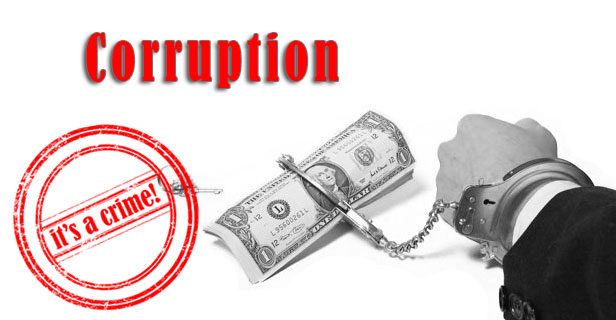

"Corruption is the thief of economic and social development; stealing the opportunities of ordinary people to progress and to prosper"
Yury Fedotov,
Executive Director of the United Nations Office on Drugs and Crime (UNODC)
The 2015 UN Crime Congress aims to raise awareness of the connection between weak crime prevention and ailing social development, as well as to show states that without respect for the rule of law and an effective criminal justice system, sustainable development will be difficult to attain.
The rule of law requires coherent legal frameworks based on human rights and effective governmental systems and institutions. Citizens of a state must all have equal rights under the law, with access to public services, information and justice. With proper standards and frameworks, rule of law supports enforceable contracts, fair labour regulations, healthcare and sanitation systems, education, effective security against violence, conflict and crime-all vital elements for development and inclusive growth.
A main deterrent to development and equality is corruption, which undermines institutions and contributes to instability. With rampant corruption, foreign direct investment is discouraged and businesses cannot thrive, meaning economic development is stunted. Corruption affects every level of society, starting from the government down to the average citizen. The impoverished suffer most, usually due to diversion of public money and foreign aid away from vital projects. Without fair use of these resources, countries lack funds to build vital infrastructure such as roads, hospitals and schools.
But corruption is not just about money being stolen from where it is needed the most; it leads to weak governance, which in turn fuels organized criminal groups and promotes crimes such as human trafficking, arms and migrant smuggling, counterfeiting and the trade in endangered species.
Corruption is the single greatest obstacle to economic and social development around the world.
It stifles economic growth, undermines the rule of law, and squanders talent and precious resources. Where corruption is rife, companies are reluctant to invest as the costs of doing business are significantly higher. Ultimately, corruption prevents people, countries and businesses from fulfilling their potential.
Corruption undermines democracy, governance and human rights by weakening State institutions that are the cornerstones of fair and equitable societies. Vote buying at elections distorts the democratic process and justice is challenged when criminals are able to bribe with impunity.
With funds intended to provide essential services such as health care, education, clean water, sanitation and housing diverted by corruption, there is less provision of services.
Crime and corruption degrade already weak state institutions, as criminals use resources from illicit activities to bribe law enforcement officials, neutralize courts, purchase or intimidate politicians and journalists, and engage business leaders in criminal activities.
Cumulatively, corruption, crime and weak rule of law tear at the social fabric, undermining the legitimacy of the state, driving out licit economic activity, and endangering public security.
"The rule of law is both an essential condition of sustainable development and a development outcome in its own right. The rule of law can promote inclusive economic growth, reduce inequalities and build institutions that provide access to justice for all."
-Jan Eliasson, Deputy Secretary-General
The only legally binding universal anti-corruption instrument is the United Nations Convention against Corruption(UNCAC) which now has 174 states parties. The Convention contains innovative and globally accepted anti-corruption standards applicable to both the public and private sectors. The Convention encourages states to successfully attack corruption by providing equal and fair justice for all and creating an environment where the rule of law can prevail.
A global community of anti-corruption experts is being created through the peer review mechanism set up to support the implementation of the UNCAC. The mechanism is also helping to desensitize and depoliticize the issue of corruption, enabling a frank and constructive global dialogue among regions and legal systems.
UNODC has trained more than 1,400 anti-corruption practitioners from across the globe and provided assistance to dozens of States to draft or amend their legislation.
The mechanism has a truly global reach and the country reports have become a benchmark against which countries can measure their progress. It is helping build up a global picture of efforts against corruption. Another of its strengths is its inclusiveness which enables least developed countries and developing countries to participate on an equal footing in the review process.
UNODC also partners with the World Bank on the Stolen Asset Recovery Initiative (StAR Initiative), which supports efforts to end safe havens for corrupt funds. StAR works closely with developing countries and financial centres to prevent the laundering of the proceeds of corruption and to facilitate more systematic and timely return of stolen assets.